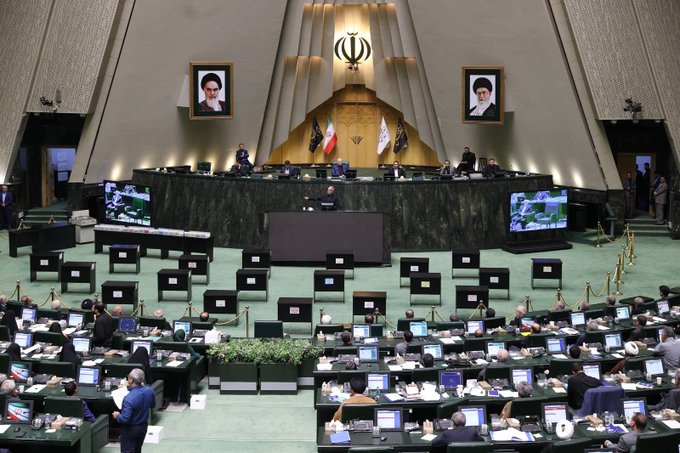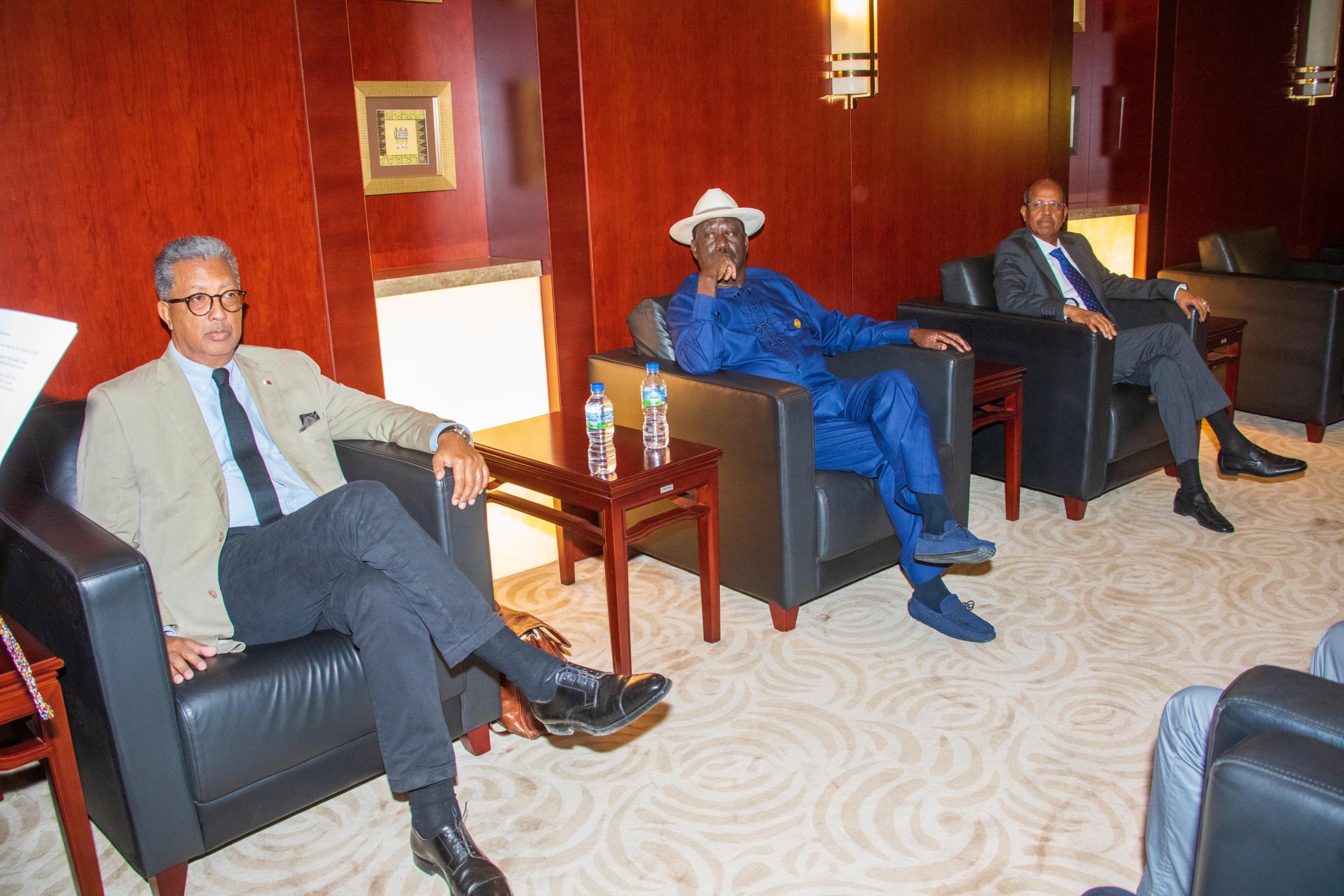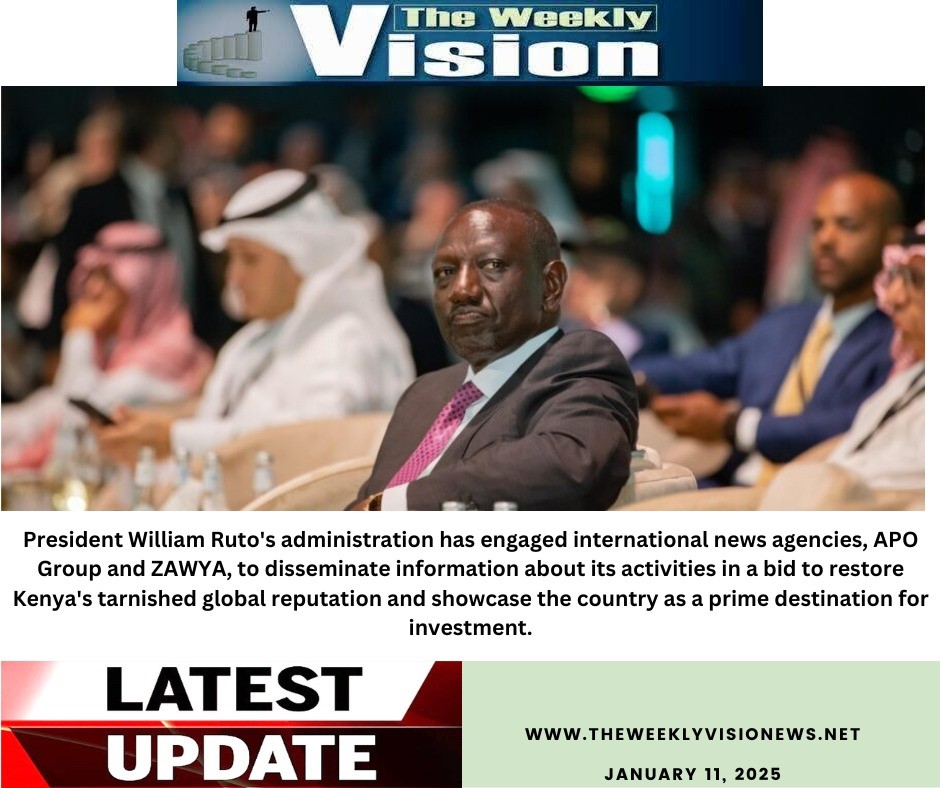“The strike in Doha has exposed vulnerabilities in the Gulf,” noted Bader Al-Saif, a Kuwaiti academic, highlighting how Israel’s actions undermine US credibility as a protector. Qatar’s Prime Minister, Sheikh Mohammed bin Abdulrahman Al Thani, has reaffirmed Doha’s commitment to mediation, insisting: “Nothing will deter us from our role,” even as it weighs potential fallout from Zarei’s overture
To unlock the full article:
Choose one of the options below:
- Ksh 10 – This article only
- Ksh 300 – Monthly subscription
- Ksh 2340 – Yearly subscription (10% off)
By TWV Foreign Affairs Correspondent
In a provocative escalation of Middle East tensions, an Iranian lawmaker has called on Qatar to expel American military forces from its soil and instead invite Iran’s elite Revolutionary Guards to station hypersonic missiles there as a bulwark against Israel. The extraordinary proposal, made public on Thursday, comes in the wake of an audacious Israeli airstrike on Qatari territory earlier last week, which killed a Qatari security officer and several Hamas operatives. This incident has ignited fierce regional debates about sovereignty, alliances, and the precarious balance of power in the Gulf.
Mojtaba Zarei, a member of Iran’s parliament and affiliated with the political science group at Tarbiat Modares University, addressed his remarks directly to Qatar’s Emir, Sheikh Tamim bin Hamad Al Thani, via a post on X (formerly Twitter). “I propose that the US army, accomplice of Israel, be expelled from Qatar, and that the Revolutionary Guard aerospace force deploy Fattah hypersonic missiles on your soil to defend your sovereignty,” Zarei wrote in Farsi, underscoring the gravity of his suggestion. In a follow-up post, he added: “The respected emir of Qatar should request support from the Revolutionary Guard aerospace force to station in Qatar,” framing the offer as a fraternal gesture of protection amid perceived threats from Israel and its allies.
Zarei’s intervention was no isolated outburst but a calculated response to the Israeli strike that rocked Doha’s diplomatic quarter on Tuesday, 9 September. The attack targeted a compound housing Hamas’s political leadership, where senior figures, including Gaza chief Khalil al-Hayya and West Bank leader Zaher Jabarin, were reportedly discussing a US-backed ceasefire proposal for the ongoing Gaza conflict.
Explosions reverberated through the affluent West Bay Lagoon district, sending plumes of smoke skyward near embassies, schools, and residential areas. Qatar’s Foreign Ministry swiftly condemned the “cowardly” assault as a “flagrant violation of all international laws and norms,” vowing to pursue legal action against Israeli Prime Minister Benjamin Netanyahu.
Hamas confirmed that five of its lower-ranking members perished, including the son of Khalil al-Hayya, three bodyguards, and the head of al-Hayya’s office, alongside the Qatari officer, Bader Saad al-Humaidi al-Dosari. The group claimed its top leaders survived the “heinous crime,” denouncing it as an attempt to sabotage peace talks. Israel, however, described the operation as a “precise strike” using targeted munitions against “top terrorist chieftains” responsible for the 7 October 2023 attacks that ignited the Gaza war, which has claimed over 64,600 Palestinian lives.
Netanyahu asserted that Israel acted independently, taking “full responsibility” without US involvement, though President Donald Trump later criticised the move as counterproductive to regional stability.
Iran’s reaction was swift and vehement, seizing on the incident to amplify accusations of American complicity.
The Iranian armed forces’ General Staff issued a statement on Wednesday, declaring: “The US government is complicit in these crimes and has no respect or regard for global public opinion or even for its own allies.” Tehran argued that the strike on Doha could not have occurred without Washington’s tacit approval, given the proximity of the US Al Udeid Air Base, the largest American military facility in the Middle East, housing around 10,000 troops and serving as the forward headquarters for US Central Command.
Iranian President Masoud Pezeshkian labelled the attack “illegal, inhumane and anti-peace,” while national security chief Ali Larijani issued a stark warning in Arabic: “O countries of the region! Prepare yourselves for my upcoming dominance.”
Hardline voices in Tehran portrayed the strike as a “lesson” for US-aligned Gulf states. Commentator Reza Ghobeishavi posted on X that the event “benefits Iran’s camp and Israel’s opponents, while harming the camp that supports normalising relations with Israel.” Major General Abdolrahim Mousavi, chief of staff of Iran’s armed forces, reiterated Tehran’s solidarity with Qatar, stating: “The Armed Forces of the Islamic Republic of Iran will never hesitate to support our Qatari brothers.” This rhetoric aligns with Iran’s broader strategy to exploit regional anger, positioning itself as a defender of Arab sovereignty against perceived Israeli aggression.
Qatar’s unique position exacerbates the dilemma. Since 2012, Doha has hosted Hamas’s political bureau, playing a pivotal role alongside Egypt and the US in mediating indirect talks between Israel and the Palestinian group. Yet, it also maintains deep ties with Washington, hosting Al Udeid as a linchpin of American operations in the region. This duality was starkly tested in June 2025, during the 12-day Israel-Iran war. Iran retaliated for US airstrikes on its nuclear facilities by launching a barrage of short- and medium-range ballistic missiles at Al Udeid, codenamed Operation Glad Tidings of Victory.
Iran notified Qatar in advance, and Qatari air defences, bolstered by advanced US-supplied systems, intercepted most of the 14 missiles, with only one causing minimal damage to a communications dome; no casualties ensued. Qatar condemned the strike as a “flagrant violation” but emphasised its desire to avoid escalation, underscoring its diplomatic tightrope.
Now, Zarei’s proposal for Fattah hypersonic missiles, capable of evading defences at speeds exceeding Mach 5, represents a bold Iranian bid to supplant US influence. The Fattah, unveiled in 2023, symbolises Tehran’s advancing missile technology, designed to pierce advanced air shields like those protecting Al Udeid. Analysts view this as Tehran’s attempt to court Qatar amid eroding trust in American security guarantees.
“The strike in Doha has exposed vulnerabilities in the Gulf,” noted Bader Al-Saif, a Kuwaiti academic, highlighting how Israel’s actions undermine US credibility as a protector. Qatar’s Prime Minister, Sheikh Mohammed bin Abdulrahman Al Thani, has reaffirmed Doha’s commitment to mediation, insisting: “Nothing will deter us from our role,” even as it weighs potential fallout from Zarei’s overture.
The international community has reacted with alarm. UK Prime Minister Keir Starmer condemned Israel’s “violation of Qatar’s sovereignty,” while Germany’s Foreign Minister expressed concern over jeopardised hostage releases. The UN Security Council postponed a session on the matter at Qatar’s request, signalling diplomatic manoeuvring ahead. Trump, seeking to broker peace, thanked Emir Tamim for regional efforts but distanced the US from the strike, warning it “does not advance Israel or America’s goals.”
As Qatar navigates this geopolitical maelstrom, Zarei’s words echo a larger Iranian ambition: to reshape alliances in the Gulf by portraying the US as an unreliable partner complicit in Israeli “crimes.” Whether Doha entertains such a radical pivot remains uncertain, but the proposal has undoubtedly heightened stakes in a region already simmering with conflict. For Qatar, balancing its roles as mediator, US host, and Iranian neighbour has never been more fraught, with the spectre of further escalation looming large.
[/full]




